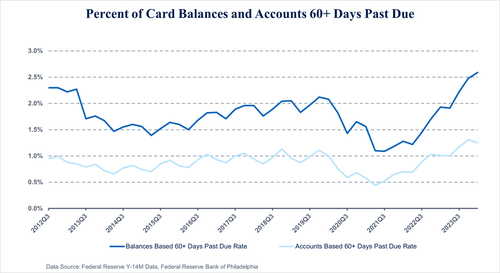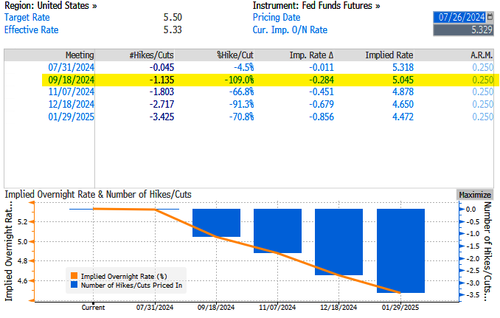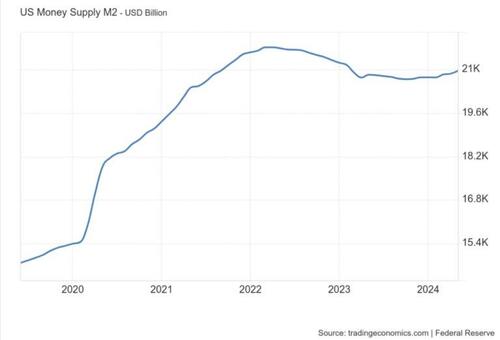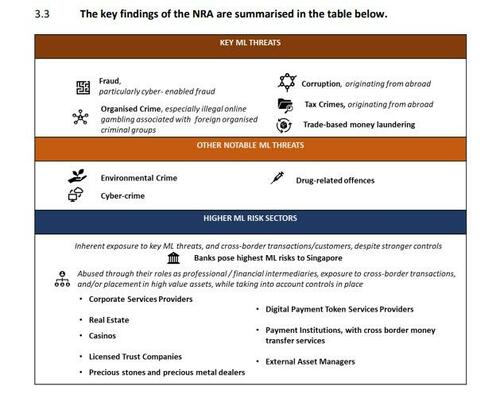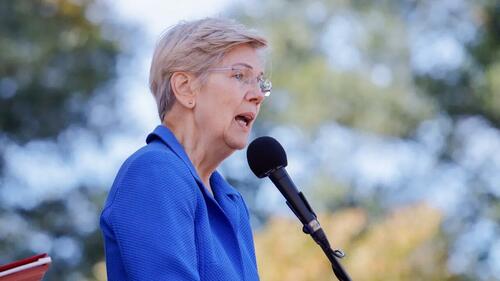Navy To Expunge Records For SEALs, Sailors Who Refused COVID Vaccines
Authored by Zachary Stieber via The Epoch Times,
The U.S. Navy has agreed to correct the records of SEALs and sailors who declined to receive COVID-19 vaccines due to their religious beliefs, under a settlement approved by a federal court on July 24.
“Defendants agree to re-review the personnel records of all class members to ensure that the U.S. Navy has permanently removed records indicating administrative separation processing or proceedings, formal counseling, and non-judicial punishment actions taken against the class members solely on the basis of non-compliance with the COVID-19 vaccine mandate and adverse information related to non-compliance with the COVID-19 vaccine mandate,” the settlement agreement states.
The review must be finished within nine months, according to the agreement.
The Navy has also agreed to review the records of class members discharged over refusal to receive a COVID-19 shot. Officials “will remove any indication from that service member’s records that he or she was discharged for misconduct” and make sure the discharged members are listed as eligible for enlistment.
The expungement of records must be completed within one year according to the agreement.
All Navy members who filed a religious request for an exemption from the Navy’s COVID-19 vaccine mandate and were actively serving as of March 28, 2022, are covered by the settlement. That includes people who rescinded their accommodation requests in order to leave the military.
Some 4,339 individuals are affected by the settlement, according to court documents.
“This has been a long and difficult journey, but the Navy SEALs never gave up,” Danielle Runyan, senior counsel at the First Liberty Institute, said in a statement.
“We are thrilled that those members of the Navy who were guided by their conscience and steadfast in their faith will not be penalized in their Navy careers.”
The Navy declined to comment on the settlement.
The lawsuit, filed in 2021 by the institute on behalf of Navy personnel, prompted the court system in 2022 to block the COVID-19 vaccine mandate for members seeking religious accommodation. In 2023, the Department of Defense rescinded the mandate for all military branches, including the Navy, per a bill approved by Congress and signed by President Joe Biden.
The settlement features the Navy committing to posting a statement on its website saying in part that the branch “supports diverse expressive activities, to include religious expression, and recognizes that through inclusion we are a better military and stronger nation for it.” The statement will say accommodating religious beliefs is “a pillar of the Navy’s commitment to treating all sailors with dignity and respect.”
The Navy has also agreed to list information advising members of their rights to request religious accommodations, create a training presentation for Navy supervisors and commanders, and pay $1.5 million in attorneys’ fees.
Individuals who believe they are part of the class to which the agreement applies can visit First Liberty Institute’s website for the settlement.
More than 16,000 military members filed religious accommodation requests as of January 2023. Many of the requests were denied. If members received a denial but still refused to receive a COVID-19 vaccine, they were often booted from the force. Branches discharged 7,705 members for not complying with the COVID-19 vaccine mandate. The Navy discharged 1,566 members.
When the Navy discharged members, it gave them reentry codes that made them ineligible for reenlistment.
The Army and Air Force violated their own rules in handling exemption requests in a timely manner, the Pentagon’s inspector general said earlier this year, while the Marines and Navy generally met their timeline requirements.
The Navy, though, was among the branches that the watchdog found used incorrect codes for members who were granted exemptions. Officials attributed the incorrect codes to clerical errors.
Tyler Durden
Fri, 07/26/2024 – 15:35
via ZeroHedge News https://ift.tt/Pb37Gz8 Tyler Durden



